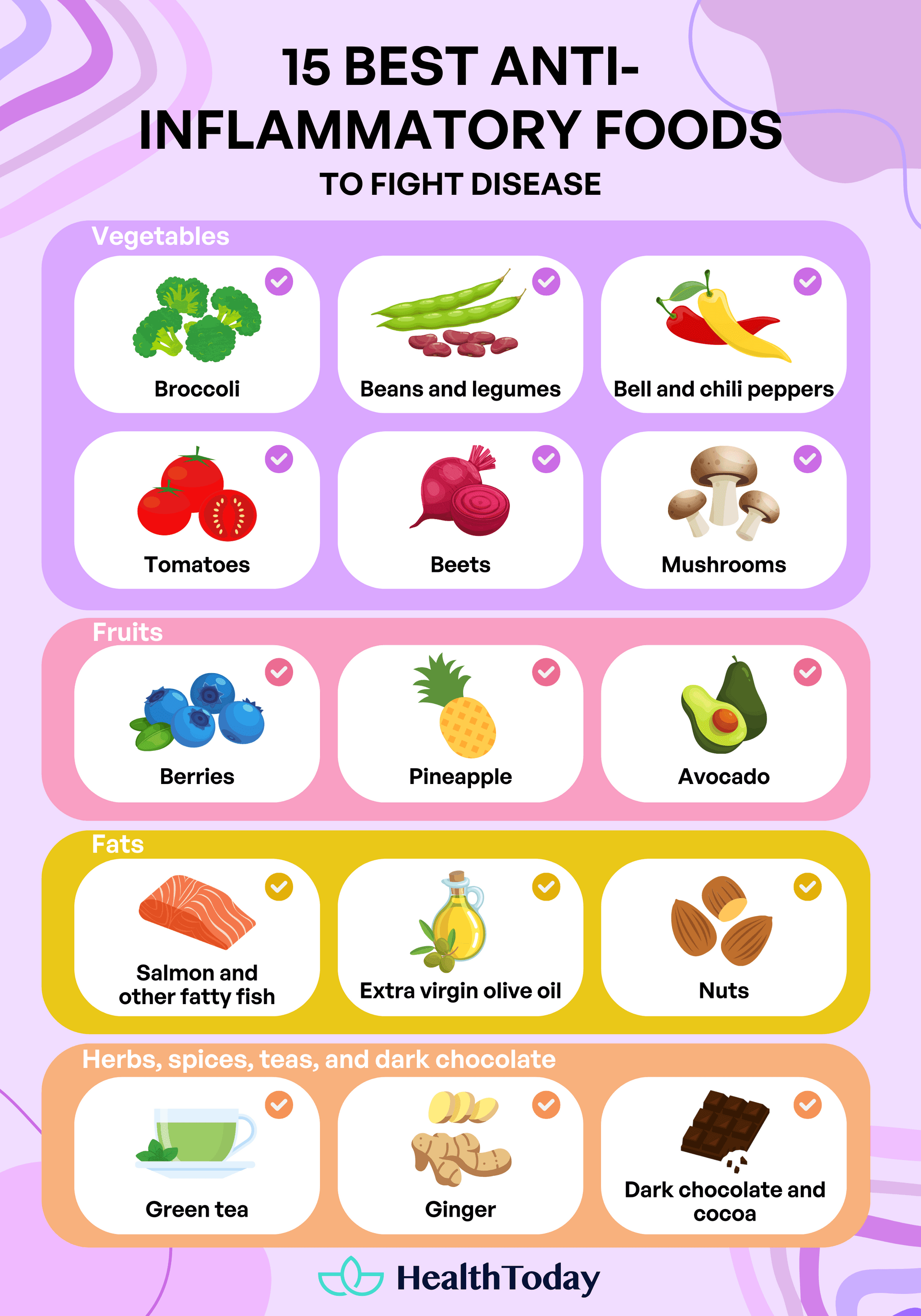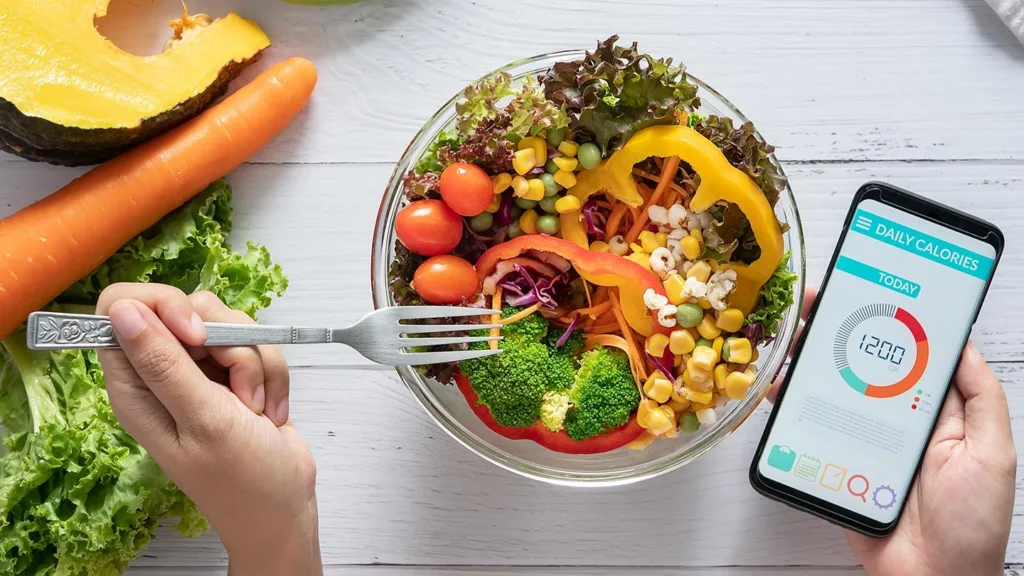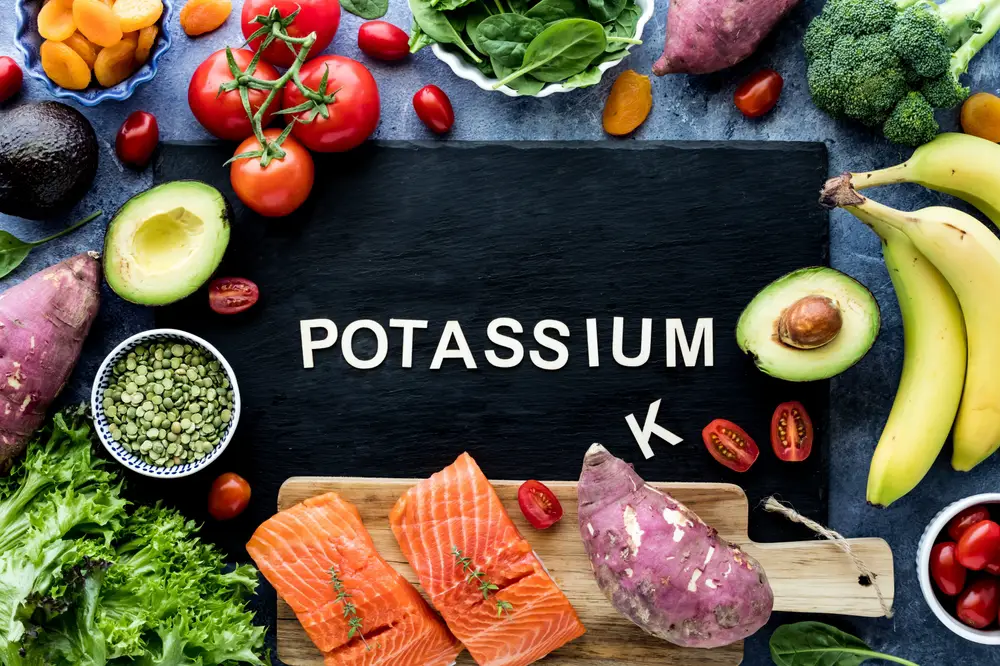Table of Contents
Picture a dining table full of colorful fruits, vegetables, and omega-3-rich fish. These foods are not only beautiful and delicious but also come with many health benefits. Whether you want to prevent chronic disease or feel better every day, consider including these anti-inflammatory foods in your diet.
Let’s dive in and discover the top 15 foods for reducing inflammation.
What is inflammation?
Inflammation is our body’s natural response to injury or infection and is necessary for healing. There are two general types of inflammation to know about—acute and chronic inflammation.
Acute inflammation
Acute inflammation is a short reaction to injury or infection. Its purpose is to deal with harmful stimuli and begin the healing process.
This kind of inflammation can be compared to a pothole in a road.
An inflammatory response starts when the immune cells (repair crew) rush to the injured site (pothole), block it off, and bring in proteins and cells (repair materials) to fix the damaged tissue.
After some time, everything is fine again, and the body works as normal.
Chronic inflammation
Chronic or systemic inflammation is a type of inflammation that can last for months or even years.
Just like a road gets damaged by weather or heavy traffic, certain things can harm the body, causing ongoing inflammatory conditions.
Eventually, the immune system might not be able to keep up with fixing the damage, leading to long-term inflammation.
Chronic inflammation can become a systemic problem affecting many organs and bodily functions (1).
Chronic diseases and systemic inflammation
Long-term inflammation is a condition associated with a wide range of chronic or long-term diseases.
When an inflammatory response becomes chronic, it can damage body tissue and organs over time. This can cause various health problems, such as joint pain, cognitive decline, and an increased risk of cancer (2).
Fortunately, there are steps you can take to reduce inflammation and lower the risk of chronic disease.
One of the most effective ways is to follow a healthy diet with foods that fight inflammation. Eating healthily can help lower inflammation and promote good health.
What should you add to your next meal? Keep reading to discover the best anti-inflammatory foods you can incorporate into your diet!
Top 15 foods that fight inflammation
Below are the top 15 anti-inflammatory foods, categorized into vegetables, fruits, fats, and other key foods. Feel free to choose the ones you fancy and start building an anti-inflammatory diet today!

Vegetables in an anti-inflammatory diet
Vegetables are chock full of nutrients and fiber that your body needs. Some even have anti-inflammatory effects that can help fight heart disease, diabetes, and cancer. Here are some nutritious vegetables and how to work them into your anti-inflammatory diet.
1. Broccoli
Broccoli is rich in antioxidants and nutrients, making it a top food for fighting inflammation. This green veggie contains sulforaphane, a compound that has potent anti-inflammatory effects (3, 4)
In addition to its anti-inflammatory properties, broccoli is high in vitamins C, A, and K, as well as fiber and potassium.
Eating broccoli regularly can help support a healthy immune system, promote healthy digestion, and even reduce the risk of heart disease (5).
Enjoy broccoli raw, steamed, roasted, or sautéed. It’s a versatile vegetable that can be added to salads, stir-fries, pasta dishes, juices, and much more.
2. Beans and legumes
Beans and legumes are excellent plant-based protein, fiber, and essential nutrient sources. Two legumes known to have strong anti-inflammatory properties are tofu and edamame.
Tofu, or soybean curd, is a popular protein source in vegetarian and vegan diets. It’s rich in isoflavones, which can help reduce inflammation and improve heart health (6).
Edamame is a type of soybean harvested when it’s still young and green. Like tofu, it’s also a good source of isoflavones and other anti-inflammatory compounds. Edamame is also rich in fiber, which can help improve digestion.
You can add tofu and edamame to your salad or soup or stir-fry them with other vegetables or meat for a tasty, healthy meal.
3. Bell and chili peppers
Peppers, including bell and chili peppers, are an excellent addition to any diet seeking to mitigate inflammation.
Bell peppers are high in antioxidants such as vitamin C and beta-carotene, which help reduce inflammation and prevent damage from free radicals (7).
Additionally, chili peppers contain capsaicin, a compound that reduces inflammation (8, 9)
To get the most benefit from peppers, it’s best to eat them lightly cooked. Add diced bell peppers to stir-fries or omelets. Chili peppers can add heat to your sandwiches or tacos.
4. Tomatoes
Tomatoes are popular in many dishes, not just for their taste. They are a great source of antioxidants for inflammation, vitamins, and minerals.
Tomatoes are rich in lycopene, a powerful antioxidant that reduces inflammation by combatting molecules that promote inflammation (10, 11)
Interestingly, cooking tomatoes, especially with olive oil, can increase their lycopene content, making it more available to the body (12).
Tomatoes are also low in calories and high in fiber, so ideal for an anti-inflammatory diet. You can enjoy them in many ways, such as sliced in salads, roasted with herbs, or blended into a delicious tomato soup.
5. Beets
Beets are a colorful root vegetable with an earthy taste. They are a great source of dietary fiber, vitamins, minerals, and antioxidants.
The rich color of beets comes from betalains, a group of pigments with antioxidant and anti-inflammatory properties that can combat chronic diseases (13, 14)
Furthermore, beets are high in nitrates, which can help lower blood pressure and improve heart health (15).
Beets are a nutritious and versatile vegetable that can be prepared in numerous ways, such as roasted, steamed, or grated in salads.
6. Mushrooms
Mushrooms are unique in the culinary world and well-known for their medicinal properties. Mushrooms like shiitake, maitake, and reishi have anti-inflammatory effects for a reduced risk of chronic diseases.
Shiitake mushrooms contain lentinan—which, in lab studies, stimulated the immune system to combat inflammation (16). However, it is unclear how much is bio-available when eaten.
Maitake and reishi mushrooms have been used in traditional medicine for centuries. They contain various bioactive compounds with anti-inflammatory properties and help boost the immune system (17, 18)
Whether you sauté them as a side dish, add them to soup, or take them in supplement form, adding mushrooms to your diet may help reduce inflammation and keep you healthy.
Vegetables are high in vitamins, fiber, and anti-inflammatory markers. Broccoli is particularly notable for being rich in sulforaphane, which has potent anti-inflammatory properties. Additionally, tofu, edamame, peppers, tomatoes, beets, and mushrooms are also anti-inflammatory foods due to their isoflavones, capsaicin, lycopene, betalains, and bioactive compounds, respectively.
Fruits in an anti-inflammatory diet
Fruits are colorful and tasty, with many health benefits. Many contain vitamins and antioxidants that help fight inflammation. Let’s look at some juicy gems that can improve your health!
7. Berries
Berries, such as blueberries, strawberries, raspberries, and blackberries, are delicious and packed with antioxidants and anti-inflammatory molecules (19).
These tiny fruits are rich in anthocyanins, potent antioxidants that give them vibrant color and support our health (20, 21).
Eating berries regularly can reduce inflammation and oxidative stress, which can lead to cardiovascular disease and cancer (22, 23)
You can easily incorporate berries into your diet by adding them to smoothies, yogurt, or oatmeal. You can also enjoy them directly as a healthy snack.
8. Pineapple
Pineapple is a delicious tropical fruit packed with plenty of vitamin C and a group of digestive enzymes known as bromelain. Bromelain is a mixture of powerful enzymes that break down proteins and block certain inflammatory molecules.
Pineapple is, therefore, an excellent food to include in an anti-inflammatory diet (24, 25, 26, 27)
Enjoy this prickly fruit fresh, grilled, on pizza, in a sweet and sour soup, or blended in a smoothie.
9. Avocado
Avocado is a unique fruit with healthy fats, fiber, vitamins, and minerals. It’s often praised for its heart-healthy benefits, but it also has anti-inflammatory effects (28).
The monounsaturated fats found in avocados help reduce inflammation in the body, particularly in the cardiovascular system (29, 30)
Avocados are also rich in vitamin E, a micronutrient with anti-inflammatory properties. Eating a diet high in such compounds has been linked to a lower risk of joint damage that often occurs in the early stages of osteoarthritis (31).
Avocado is an excellent addition to salads, sandwiches, and wraps. You can even use it as a substitute for unhealthy fats like mayonnaise or sour cream.
Fruits are fun to eat and full of nutrients that lower inflammation. Berries are rich in anthocyanins, antioxidants, and anti-inflammatory markers. Pineapples have bromelain, which has been shown to defend against pro-inflammatory molecules. Avocados have monounsaturated fats that lower inflammation in the cardiovascular system.
Fats for an anti-inflammatory diet
Many people might avoid fat in their diet to prevent weight gain. However, having some healthy fats, such as omega-3 and unsaturated fats, can improve your health and manage inflammation. Let’s catch up with some nourishing oils!
10. Salmon and other fatty fish
Fatty or oily fish, including salmon, mackerel, sardines, and anchovies, are excellent sources of omega-3 fatty acids. Omega-3s, such as DHA, are essential fatty acids the body cannot naturally produce and must obtain through the diet.
Omega-3 fatty acids are great anti-inflammatory agents because they can reduce the production of inflammatory molecules, such as cytokines and prostaglandins (32, 33)
In addition to their anti-inflammatory benefits, omega-3 fatty acids have been linked to various health benefits, including improved heart health and brain function (34, 35)
One of the easiest ways to add oily fish to your diet is to enjoy them as a main dish or salad, sandwich, or soup.
When choosing fish, opt for wild-caught varieties whenever possible, as these tend to be lower in contaminants and higher in beneficial nutrients.
11. Extra virgin olive oil
Olive oil is a healthy fat rich in anti-inflammatory compounds such as polyphenols and omega-3 fatty acids. These compounds can help decrease inflammation and lower the risk of cardiovascular disease and cancer (36).
Olive oil also contains monounsaturated fats that can help lower cholesterol levels and improve insulin sensitivity (37).
You can have olive oil in salads, sauces, marinades, and even coffee (if you dare!) Try to choose high-quality extra-virgin olive oil for the most beneficial compounds (38).
12. Nuts
Nuts like almonds and walnuts have healthy fats, fiber, and antioxidants (39).
Almonds are rich in vitamin E, an antioxidant that reduces inflammation.
Walnuts are high in omega-3 fatty acids, which enhance heart health and reduce inflammation. They also contain magnesium, an essential mineral with anti-inflammatory properties (40).
Nuts can be easily incorporated into various meals and snacks. You can eat them as they are, add them to salads or oatmeal porridge, or use them as a crunchy topping for yogurt or smoothie bowls.
Oily fish, olive oil, and nuts have healthy fats ideal for an anti-inflammatory diet. They have omega-3 fatty acids, which have anti-inflammatory benefits to improve heart health and brain function. They also have unsaturated fats that can help lower cholesterol levels.
Herbs, spices, teas, and dark chocolate
The benefits of herbs and spices have withstood the testament of history. Modern research also reveals how these fragrant ingredients help beat inflammation. Let’s see what these foods can do!
13. Green tea
Green tea has been a popular beverage in Eastern cultures for centuries. It is known for its rich flavor and numerous health benefits.
Green tea has catechins, which are potent antioxidants that lower inflammation in the body by neutralizing harmful free radicals. In addition, catechins may also help protect against certain types of cancer (41, 42, 43).
Other compounds found in green tea, such as theanine, may also help promote relaxation and reduce stress (44).
Whether you enjoy it hot or cold, green tea is a refreshing and health-promoting beverage for people of all ages.
14. Ginger
Ginger has anti-inflammatory and antioxidant effects and has been used for centuries for its medicinal properties.
Ginger contains compounds called gingerols and shogaols, which inhibit the production of pro-inflammatory cytokines in the body. This can help combat inflammation and ease symptoms of chronic conditions like arthritis and nausea (45).
Ginger tea, made by steeping fresh or dried ginger in hot water, is a soothing and delicious drink. Ginger can also be used in soups, stir-fries, and more.
15. Garlic
Garlic is a flavorful ingredient that is commonly used in many dishes around the world. It has also been known for its numerous health benefits.
Garlic has been shown to have antibacterial properties, making it helpful in fighting off infections. In addition, garlic may also benefit heart health, as it has been shown to lower cholesterol levels (46, 47, 48).
Try adding garlic to dressings and dips for more flavor. You can also roast garlic and spread it on toast or use it as a pizza topping!
16. Dark chocolate and cocoa
Dark chocolate and cocoa are not only delicious but also have anti-inflammatory benefits.
They contain flavanols, an antioxidant that can help reduce inflammation. Studies have shown that consuming dark chocolate or cocoa powder can decrease the levels of specific inflammatory markers in the blood (48, 49).
In addition, these foods can also improve blood vessel function and reduce the risk of heart disease (50).
Note that not all chocolate is equal. Dark chocolate with a high cocoa content (70% or more) is the best because it contains the most flavanols. Milk and white chocolate lack flavanols and have few anti-inflammatory benefits.
Ginger can help lower inflammation and ease symptoms of chronic conditions like arthritis and nausea. Garlic has antibacterial properties that help combat infection. Green tea contains catechins, powerful antioxidants that reduce inflammation and may help protect against cancer. Dark chocolate has flavonoids that lower inflammatory levels.
Other ways to reduce inflammation
While eating anti-inflammatory foods is an ideal way to lessen inflammation, it is not the only solution. Adopting a healthy lifestyle and good habits can also play a significant role.
Here are four things you can pay attention to:
- Avoiding processed foods: These can include processed meats, most ready-to-eat meals, and processed foods with high sugar content.
- Staying active: Regular exercise can improve circulation and boost the immune system.
- Managing stress: Try meditation, yoga, or simply taking a break.
- Getting enough sleep: Aim for 7-8 hours of good quality sleep every night.
1. What is the fastest way to reduce acute inflammation?
To reduce acute inflammation quickly, take anti-inflammatory medication like aspirin under the guidance of a healthcare professional. Applying ice or heat to the injured area can also help reduce inflammation quickly.
2. What foods quickly reduce inflammation?
Omega-3 fatty acids are the most effective foods that fight inflammation. They can also protect against heart disease, stroke, and other chronic conditions. Omega-3s are typically found in fatty fish and nuts.
3. What are the best foods to fight inflammation?
The best anti-inflammatory foods are fatty fish, broccoli, and fresh berries. These three together represent omega-3 oils, fresh vegetables, and tasty fruits—three things you should try eating every day.
4. What’s the best drink to reduce inflammation?
Green tea, ginger tea, or pineapple juice are some of the best drinks to decrease inflammation. At the same time, you should avoid sports drinks or sugary beverages with added sugar or artificial sweeteners.
5. Do fried foods cause inflammation?
Unhealthy foods like fried foods will cause inflammation because they generally contain unhealthy oils such as trans fats. Eating too much-fried food may also lead to weight gain, higher cholesterol, and heart disease.
Summary
Building an inflammation-proof diet isn’t hard. All you need is a balanced diet with plenty of fruits and vegetables and oily fish. They have all the vitamins, fiber, and antioxidants to benefit your health. Healthy meal plans are only a part of an anti-inflammatory lifestyle. Combine these with regular exercise, sufficient sleep, and stress management, and you are on your way to a lifestyle with a reduced risk of disease.

















Comments
0